In 2014 I wrote a few blogs about a puzzling hedge (see here, here, here) and I revisited it in 2017 (see here).
The resolution to the puzzle was that a farmer had driven down the road with his spray still on and had, accidentally, sprayed over a mile of roadside hedge. This happened, probably in autumn 2013 but wasn’t noticed until the next spring.
I travelled that way again on Wednesday, by chance, and took a few images , two of which are below with the same scene back in August 2014.
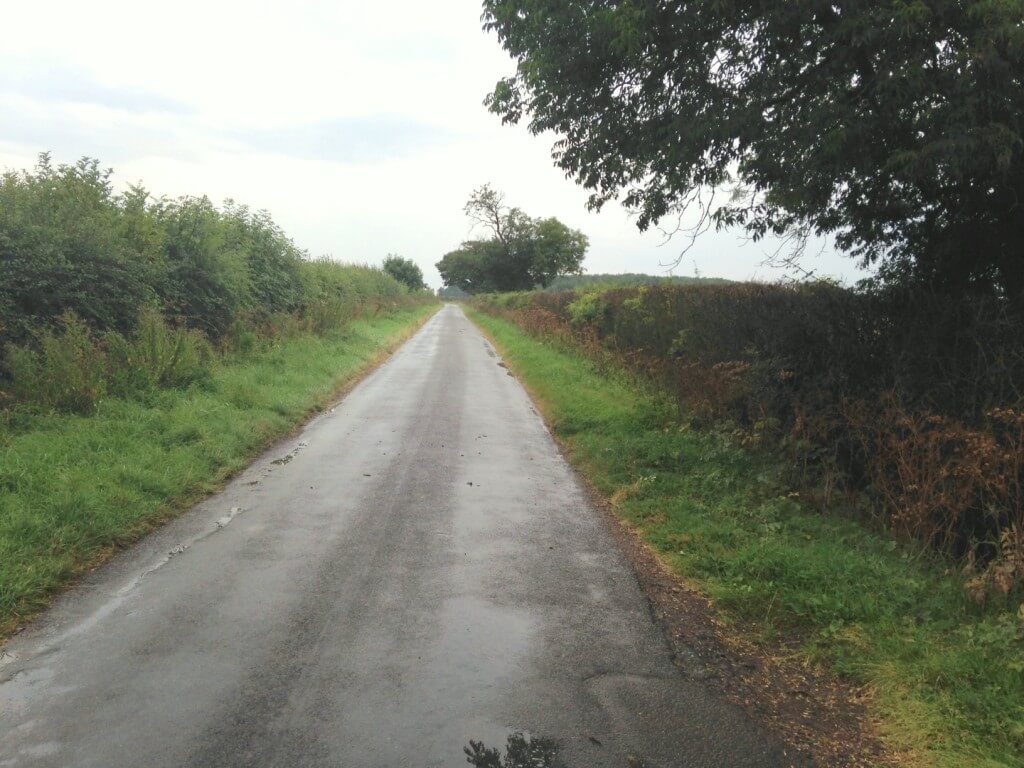
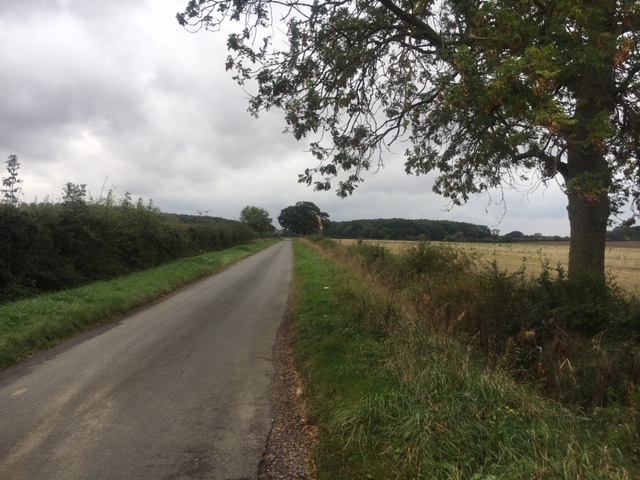
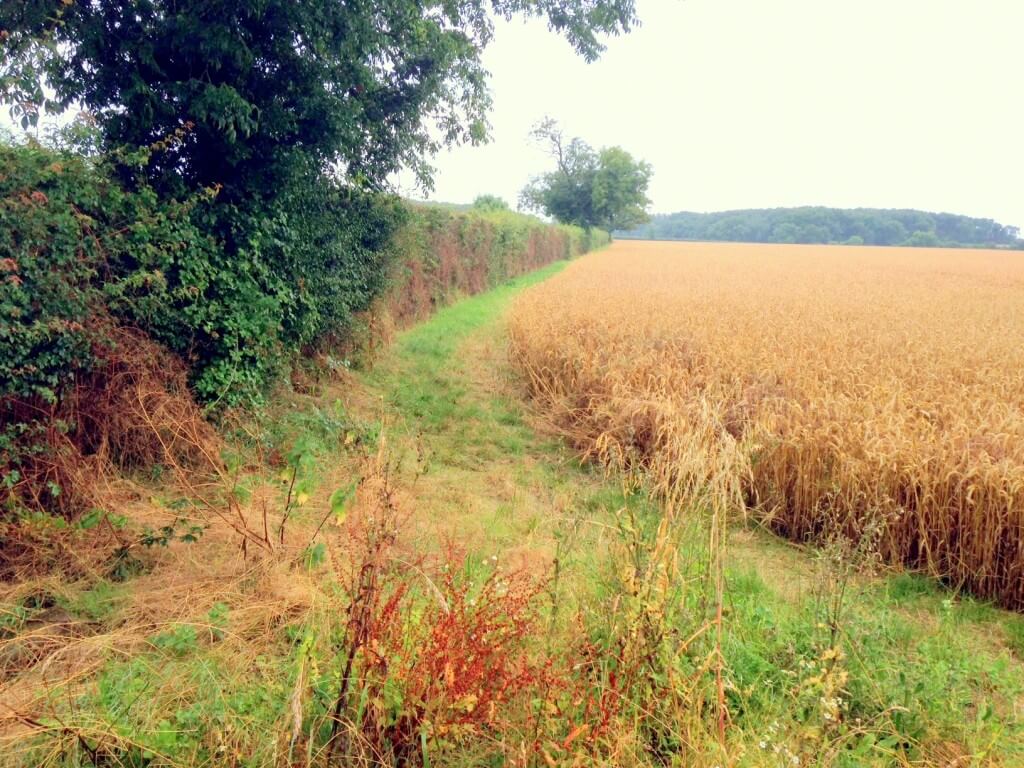
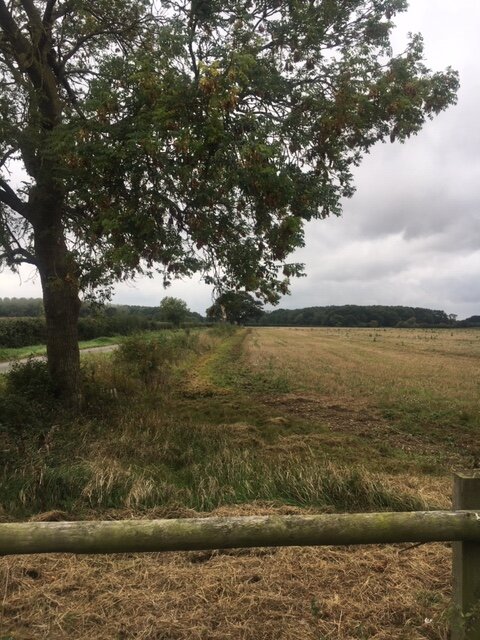
That stretch of hedge has completely disappeared now and it was once a thick, luxuriant species-rich hedgerow. I guess it’ll grow back but it’s a shame.
The good news is that further down the stretch of affected hedgerow, which was over a mile long, the hedge looked much better yesterday.
Here are a couple of images;
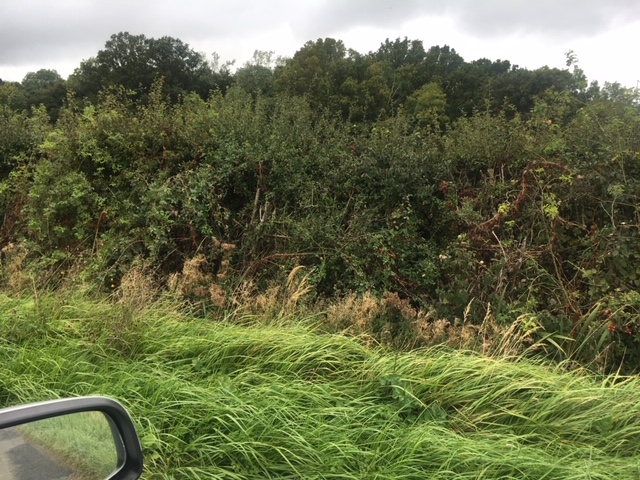
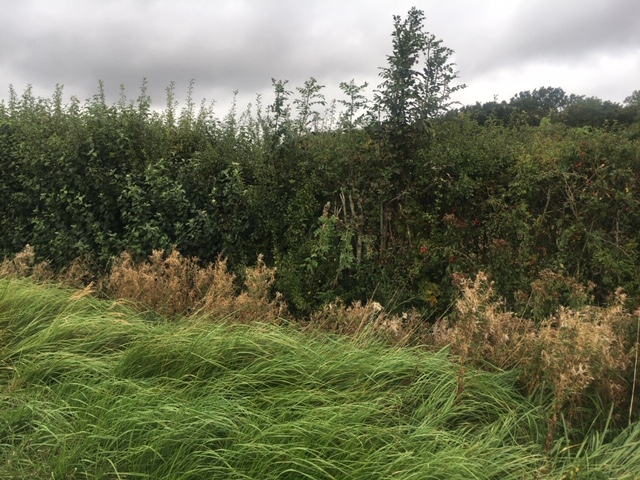
Nature recovers if given the chance. But that’s a bit like saying that an abused child can grow up to have a fulfilled life – it can happen but it doesn’t always, and even when it does it’s still better not to do the harm in the first place.
[registration_form]
Yes indeed, *much* better for it not to happen in the first place.
How in God’s name could someone be so careless with something so destructive? And when he realised and switched the thing off, why didn’t he immediately fill a clean sprayer with water and drench the hedge to try and minimise the damage?
If you cared about living creatures at all, the whole time you were spraying you’d be concentrating very hard to do no unnecessary damage. In fact your whole attitude would be that the operation was unfortunate but necessary. Obvious that this guy didn’t given a damn. (And this is a person who’s probably got a shotgun license.)
What a comment.
Typical of someone who is so clever who has never ever made a mistake.
How the hell would be suspect that probably a humble tractor driver should have a shotgun licence and even if he has it is obviously not a crime.
Sadly typical of quite a lot of anti farming comments.
I remember from school a Latin phrase attributed to Virgil
“Naturam ad furcas expellet sed semper recurrit”
“You can drive out nature with a pitchfork but she always comes back”
Sadly I’m not sure it holds true anymore, and maybe the nature that returns is never as biodiverse as the original.
(I failed Latin O-level in spite of Mr Gillibrand’s best efforts so please forgive any errors in the quotation)
Hedgerows are vital for nature. They provide important cover and “highways” for our wildlife. A good hedgerow should be at least 8 metres wide at the base. At out Otmoor Reserve they are much like this and being mostly blackthorn and hawthorn provide very good cover for nesting birds such as common and lesser whitethroats, buntings, linnets and many others. They are also very good for butterflies. They are coppiced on a fifteen year rotation.
The abuse of hedgerows which now takes place all over the country using these flails driven by a JCB, renders the hedges useless for wildlife. They are smashed up by these flails such that they are completely flat topped and about a metre in width all the way down, one can easily see trough them . Further more the flailing removes all the growth that would provide berries as food for birds and small mammals the following year. So it is small wonder that our wildlife is being destroyed.
If one single thing should be done to improve our hedgerows it should be the complete ban on the use of flails. They are dreadful things.
Someone else who has no idea of the difference in the economics between commercial farming and I guess others with lots of money collected as a charity.
Does he think he knows more about hedges than farmers.
Who the bloody he’ll does he think originally was responsible for producing all UK hedgerows.
Typical of lots of people with little knowledge thinking they know more than professional farmers.
Absolutely unbelievable.
“Who the bloody he’ll does he think originally was responsible for producing all UK hedgerows.”
The ancestors of the people responsible for grubbing up thousands of miles of them in the recent past?
Just guessing.
Alan, I ‘borrowed’ some of your penultimate paragraph in my request to one of my local councillors, if it were possible, to not use flails. There are some cruelly hacked hedges near where I live too.
The councillor is animal/environmentally – friendly, tho’ I expected her to say avoiding the flail would make the pruning more expensive/time-consuming.
However, she has been concerned herself and has spoken to the Tree Group – they are discussing this with the council and even with local landowners, as the TG too is opposed to use of flail.
So glad I read this blog piece and the comments – thanks, Alan.
Good grief! That’s no accident; it’s deliberate, maybe to get out of paying for managing the verge and hedge?
This hedge won’t recover; modern herbicides are too good, the arable plants (weeds) either side have had it, as spraying can be still done from the field side.
It’s idiotic to say nature will recover; it won’t unless a change of policy is implemented, and that’ll take years.
We are battling to save one of our fields because between NE and the Trust, they got us to spray this field, much against our belief. I’m really glad we told them both since where to go. Nature in this country doesn’t stand a chance when both sides of the arguement really are that incompetent.
Thomas – you haven’t read the links have you? It was an accident, I think we can be pretty sure about that from what I am told. And much of the hedge is recovering, slowly, perhaps not completely, but surely.
“accidentally”
Of course it was an accident, no one’s life was lost.
Getting the sprayer back to a water supply, washing the tank out then fill it with clean water going back and spraying the hedge with what is a very fine mist would in my experience have made the weedkiller more effective.
It could be The hedge will never recover fully but most of us do make mistakes.
No, it wasn’t an accident. It was, at best, negligent. There is a difference and you should learn it. If a halfwit farmer travels a mile with his sprayer still on then it is absurdly negligent, it means they never looked in their mirrors even once nor did they check their equipment before departure. Both are obscenely negligent on their part.
And that is the best interpretation. The other is that this farmer decided it would be fun to commit a bit of eco vandalism to pwn the libs and greenies.
Yes Dennis, I agree with you, but would you have made that mistake? I don’t think you would?
A litre of herbicide costs the same as a good Scottish single malt, I’ve not met any farmer yet who’ll waste money like that.
We all make mistake, I’ve made loads, but not as yet where I’ve butchered a hedge like that. I’ll spend most of February replanting the bloomin’ things.
I saw the images on Dr Avery’s blog and saw red; it’s not just happening in Northants, but everywhere I look, and not just farmers either, but also, those that should know better.
No human life was lost, that’s very true, but what of the invertebrates that depend on a hedge like this? It may not have been a great hedge from the start but it would have had some form of life.
Fact is it is really nothing to do with flails which lots of conservationist go on about, farm hedges if not flailed would be trimmed to the same size with a heavy type of cutter that would have been made for the job.
Why is it no one ever complains about garden hedges cut several times a year as opposed to once a year for farm hedges.